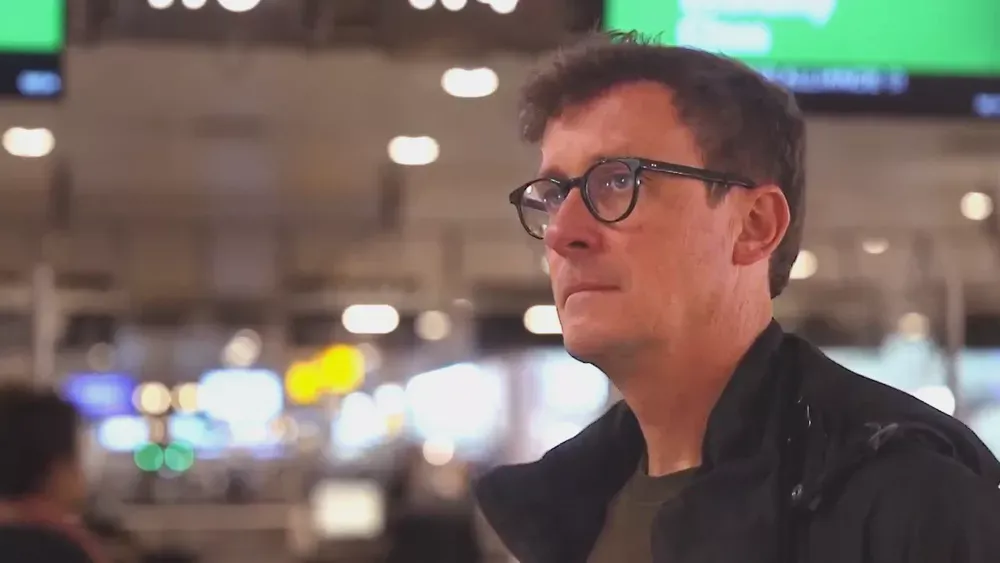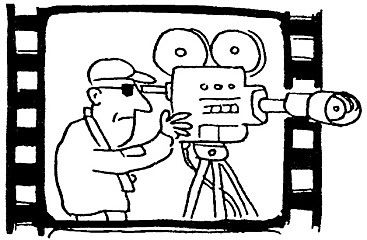My reaction to the fact that Stijn Vercruysse, a VRT journalist, is not permitted entry into Rwanda

To address the issue directly, I find it frustrating that colleague Stijn Vercruysse is denied access to Rwanda, just as I sometimes find it disappointing that other journalists here in Rwanda are also occasionally not granted accreditation. Usually, we try to assist colleagues whose accreditation requests are delayed, and most of the time, we succeed. However, to better understand our colleague Stijn’s predicament, it’s necessary to delve into the history of the often-difficult relationship between VRT and Rwandan authorities. That history is not without fault on either side; Rwandan authorities have at times acted unjustly, and VRT has had its shortcomings as well. It’s crucial to clarify these issues within this discussion. It is all too easy to label Rwanda outright as a dictatorship that tramples on human rights, press freedom, and democratic principles.
Having lived and worked in this region for over thirty years, I was here during the 1994 genocide and have followed the news from Congo, Burundi, and Rwanda since then. I am often accused of being pro-Kagame; at VRT, there are even claims that the local regime pays me to promote their interests. Filip Reyntjens, a university professor from Antwerp, has compared me on Twitter to Georges Ruggiu—the Belgian who, during the genocide, worked at Radio Télévision des Mille Collines and incited listeners to kill Tutsi. Such accusations are commonplace in Belgium, but I have yet to hear anyone complain or suggest that these claims are valid, because they are baseless and unfounded. They may also serve as a means to silence dissent or alternative viewpoints.
In media outlets like VRT, Africa is often treated as a sacred cow; journalists covering Africa tend to be out of touch with the realities on the ground, which often results in clichés. Here are my arguments:
- The probable reason the Rwandan authorities have barred Stijn is related to a recent appearance by well-known Flemish personality Tom Waes on VRT, during which he openly claimed that Belgians are being looked down upon in Rwanda, that Rwanda is not suitable for hosting a World Cup because it is a dictatorship, and that interpreters and fixers he worked with in January could not speak freely. Waes was only in the country for a few days, and his understanding of Rwanda’s history was superficial. He was able to make these assertions in a VRT studio without anyone present to provide context, nuance, or correction. Such an approach is not indicative of good journalism. The reality is that Belgians are not poorly treated or looked down upon here, despite ongoing tensions between the Rwandan government and our Minister of Foreign Affairs, Maxime Prevet. Over the past days, I have publicly challenged false reports in Rwandan media claiming that Belgium has 400 soldiers in Congo supporting Congolese forces against M23, or that drones are being used to bombard Banyamulenge in South Kivu. I verified these claims with multiple sources, and they are entirely false. Was I threatened or marginalized for doing so? No, I was not. So, for my part, Tom Waes can go on VRT and claim that oranges and bananas grow at the North Pole, but VRT made a serious mistake by not properly framing the story. Most Flemings living in Rwanda are furious with this reckless journalist, who perhaps enjoys reckless driving on Antwerp’s ring road after consuming alcohol, but who clearly has no grasp of Rwanda’s reality.
- I also have difficulty with the label that Rwanda is a dictatorship. In my assessment, that is not the case, and in Europe, there is a tendency to view Africa through an overly biased “Eurocracy-lens.” Many Europeans are convinced that their form of democracy is a sacred principle, the only correct model, also applicable to African countries. But this approach does not work as it should: the Belgian government supports regimes in Congo and Burundi because they allegedly came to power in a democratic manner acceptable to European standards. However, this path has led Burundi to become a sort of tropical Nazi regime run by Hutu extremists, and in Congo, a Brussels taxi driver and pizza delivery boy—neither of whom was elected—was parachuted into the presidency as a stopgap measure to keep the Congolese state functioning. And I have yet to mention other so-called African democracies, such as Uganda, which is now heading toward a major crisis. The Rwandan government has always maintained that everyone can participate in governance, if they are not linked to the former clique of genocidaires who murdered nearly a million innocent people during the 1994 genocide. Unfortunately, Victoire Ingabire falls into this category, and in Europe, that clique enjoys free rein to voice their opinions—often without opposition—in newspapers and on television. I have seen several times how employees of JAMBO SPRL, a radical Hutu think tank founded by the children of notorious genocidaires, appear on VRT news or Terzake. These individuals, who have never been to Rwanda, are allowed to smear Rwanda’s image without opposition.
- Rwanda has chosen its own path—a kind of middle way between chaos, kleptocracy, and corruption, which characterize many so-called democratic African countries that still enjoy European support and approval. I sometimes wonder how President Kagame managed to be elected with nearly 100 percent of the vote, but I can confidently say that most Rwandans — Hutus and Tutsis alike—support his approach. The country is making significant progress: it is safe, corruption is minimal, and there is room for open discussion on certain issues. Conversely, one could also interpret the situation differently: loud opposition figures like Victoire Ingabire or others in Brussels, who claim to be democrats, have not shed their notorious reputation from the past. They now allege that Kagame’s rebel army killed almost as many Hutus as the Tutsis—claims that the current Congo crisis is mainly the fault of the Rwandan army, and so on. I cannot subscribe to this kind of nonsense because I have followed the situation closely on the ground. The reality of the Congolese drama is often oversimplified or distorted in Europe. Are the Rwandans entirely innocent? No. But many accusations against them are politically motivated and factually unfounded—they are often blamed for things they are not responsible for. VRT does not escape blame in this new controversy. They claim to engage in critical journalism, but where was their critical stance when Tom Waes freely expressed his opinions about Rwanda? Where was their critical approach when they allowed a figure like Verlinden to continue his crusade against Kagame and his associates without interference? Where was the Flemish Association of Professional Journalists throughout all of this? Did they speak out against the fact that, on numerous occasions, genocide deniers were featured on VRT programs without victims of the genocide being given a platform to respond? For the Rwandans, it’s simple: they prefer to play it safe and do not want to be insulted in their own country.
- Katrien Vanderschoot was allowed back into the country, despite having previously made a blunder by ridiculing Yolande Makolo in an elevator of the ministry after an interview. Makolo, the government spokesperson, was not present at the time, and Vanderschoot did this in Dutch, unaware that one of Makolo’s assistants standing beside her was perfectly fluent in the language. Shame on you, Katrien! Such lapses make it difficult to score points in Rwanda. VRT journalists often make the mistake of approaching Rwanda with a preconceived opinion, thereby reinforcing the prevalent anti-Rwanda narrative in Belgium. However, I feel sorry for Stijn Vercruysse, who has now become the victim of this. Still, I found his explanation after being sent home from Zaventem airport rather weak.
The roots of the mistrust between the Rwandan government and VRT were laid years ago by individuals like Peter Verlinden. The broadcaster could have strengthened its so-called 'critical' approach by adopting a more balanced journalistic style. VRT journalists are no longer as well-informed about the realities in Africa, which results in them missing the mark more often. Vercruysse’s recent report from Congo was not the main reason for his denial; the issue runs deeper. For me, VRT also exemplifies the misunderstanding that Belgian politics often exhibits regarding Rwanda. Maxime Prevot’s intervention to resolve this matter will likely prove ineffective—in fact, it may do more harm than good. VRT would be well advised to take a hard look at itself and to balance the clichés they gather in Brussels with quotes and perspectives from the field.
Marc Hoogsteyns, Kivu Press Agency
